Public servants deny wrongdoing after providing Procedural Fairness Responses
Many of those named in parliament as having provided Procedural Fairness Responses to the Commission of Inquiry have denied any suggestion of wrongdoing. What they said.
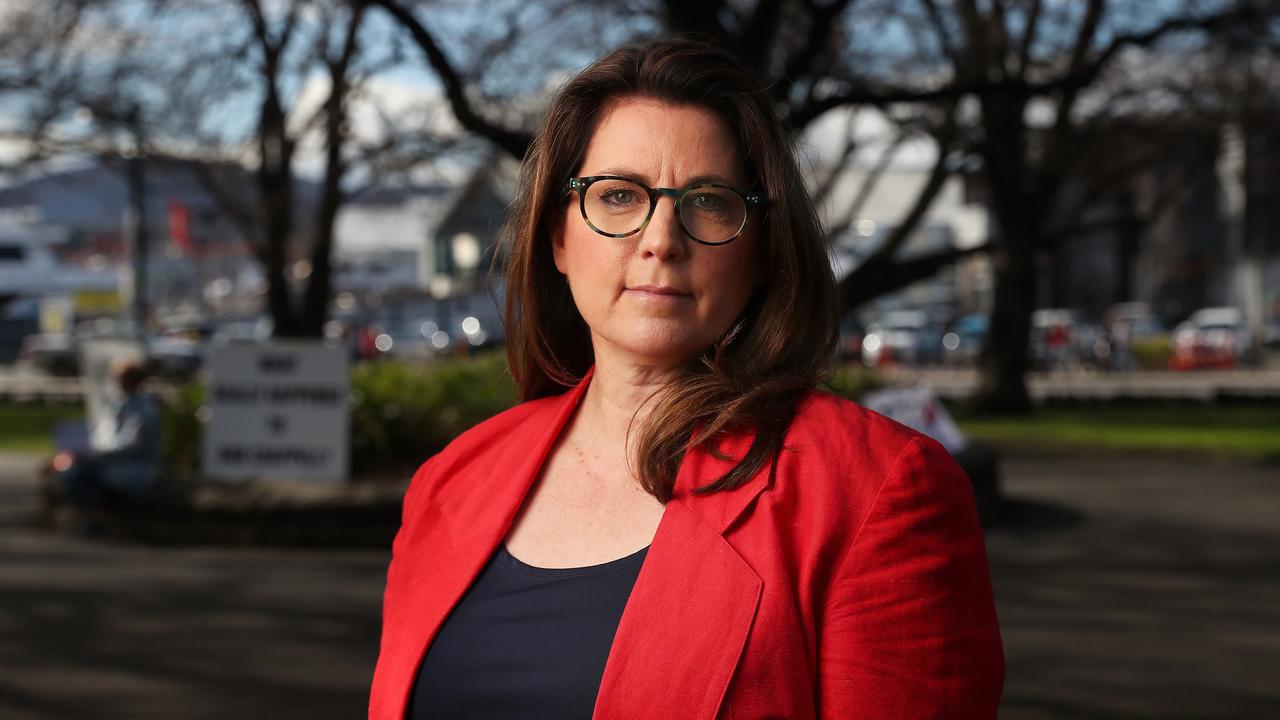
Many of those named in parliament as having provided Procedural Fairness Responses to the Commission of Inquiry have denied any suggestion of wrongdoing.
The Integrity Commissioner, Director of Public Prosecutions, Solicitor-General, Commissioner for Children and Young People, and others all issued statements on Wednesday saying that the responses they made did not indicate they had allegations to address.
Requests made by the Mercury for copies of the Procedural Fairness Responses provided to the Commission by those organisations, as well as the State of Tasmania, the Office of the Solicitor-General, the Department of Health and the Department for Education, Children and Young People were either ignored or declined.
It remains unclear which 22 individuals or organisations who were issued notices by the Commission to formally respond to allegations of misconduct.
Integrity Commission chief commissioner Greg Melick SC rejected any suggestion his organisation had faced adverse mention from the Commission of Inquiry.
“There were no proposed ‘adverse findings’ or findings of misconduct about the Integrity Commission’s CEO, Michael Easton, or any other past or present employees or Officers of the Commission,” he said in a statement.
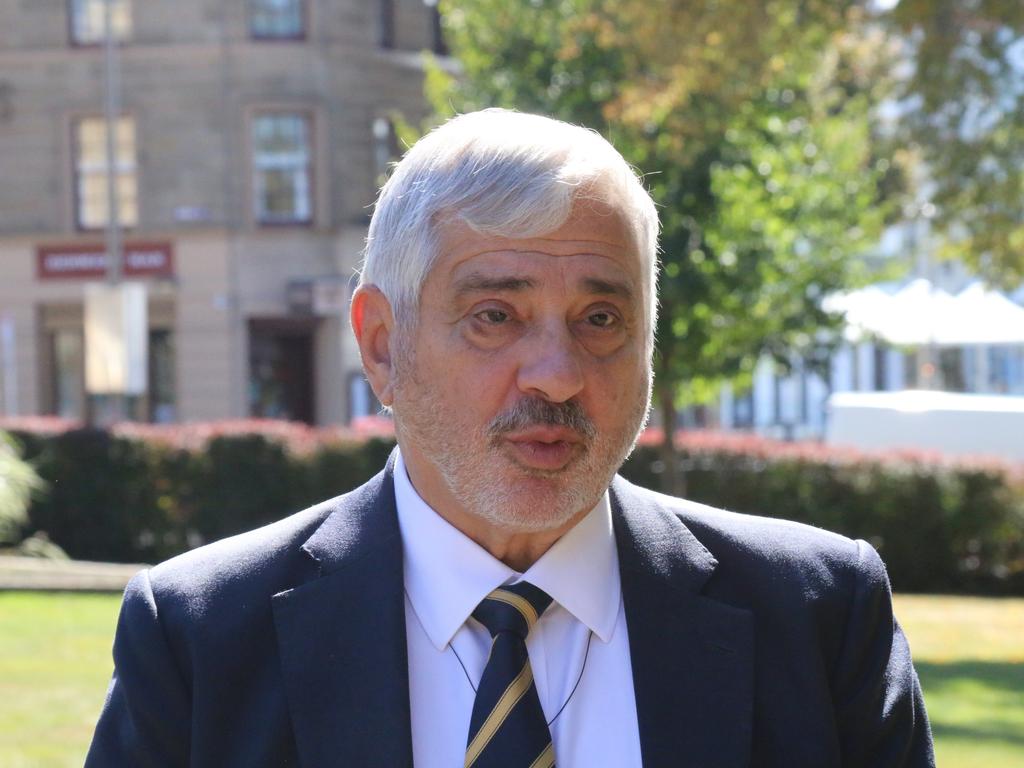
“The draft chapters were not provided under a notice of ‘potential adverse finding’ and no such notices have been received by the Integrity Commission.”
Director of Public Prosecution Daryl Coates, SC, also denied any suggestion of wrongdoing.
“It is disappointing that Ms Webb did not speak to me to clarify any of the points she raised before her speech in the Legislative Council as I could have corrected her misunderstanding before she stated them publicly,” he said.
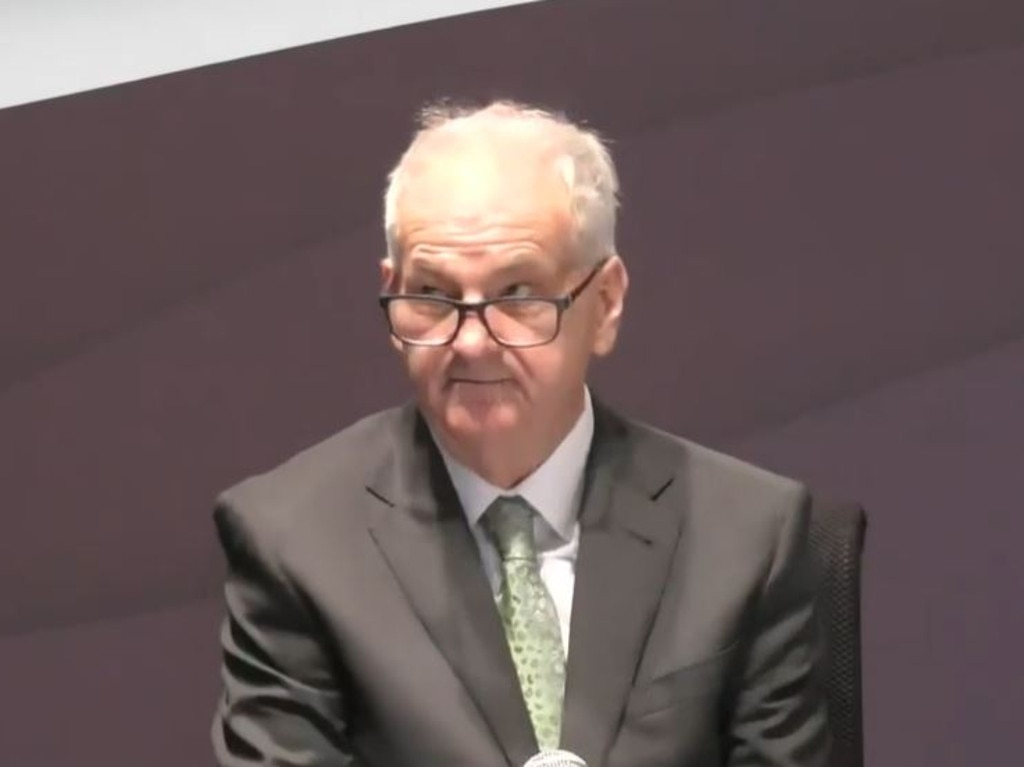
“It is also most disappointing for people in my office who work tirelessly for victims particularly victims of sexual assault, are subject to such unfounded comments.”
Solicitor-General Sarah Kay, SC, said “the assertions made by Ms Webb regarding me and my office are entirely unfounded,” she said.
“Neither I, nor anyone in my office, received a notice from the Commission of Inquiry pursuant to s18 or s19 of the Commissions of Inquiry Act 1995 containing allegations of misconduct or of an intention to make an adverse finding.
“I reject any suggestion of wrongdoing on my part or on the part of anyone within my office.”
Commissioner for Children and Young People Leanne McLean said she has also not received notice of adverse attention before submitting her Procedural Fairness Response.
“I was not served with any section 18 notices,” she said.
“I was also not made aware of any foreshadowed adverse findings against the Commissioner for Children and Young People and note that no adverse findings were made regarding the Commissioner for Children and Young People in the final report.”
And former acting Executive Director, People and Culture at Communities Tasmania Jacqui Allen also issued a statement.
“I have not at any stage been issued with a Section 18 or 19 notice by the Commission,” she said.
“I have also not been given any indication by the Commission that it intended to allege any finding of misconduct or make any adverse findings.
“Ms Webb’s statements, made under Parliamentary privilege but published on her website and in various media outlets, insofar as my name has been raised, are incorrect. In the circumstances I think it appropriate that she apologises and formally corrects Hansard.”
Premier rejects claims against public servants
November 1, 2023
Premier Jeremy Rockliff has rejected claims that some senior public servants and organisations were under a cloud because they provided Procedural Fairness Responses to the Commission of Inquiry.
In the Legislative Council on Tuesday, independent MLC Meg Webb named the 22 individuals and eight organisations who produced Procedural Fairness Responses after being warned of possible adverse findings by the Commission of Inquiry.
Among them were the Solicitor-General, the Commissioner for Children and Young People, the Ombudsman and the CEO of the Integrity Commission.
None were named in the Commission’s final report, which noted that the intervention of state government lawyers and restrictive legislation had made it difficult for adverse findings to be made.
Mr Rockliff made a statement to the House of Assembly at the beginning of Wednesday’s sitting saying the claims made in the Legislative Council on Tuesday were “wrong at law”, “irresponsible” and “false”.
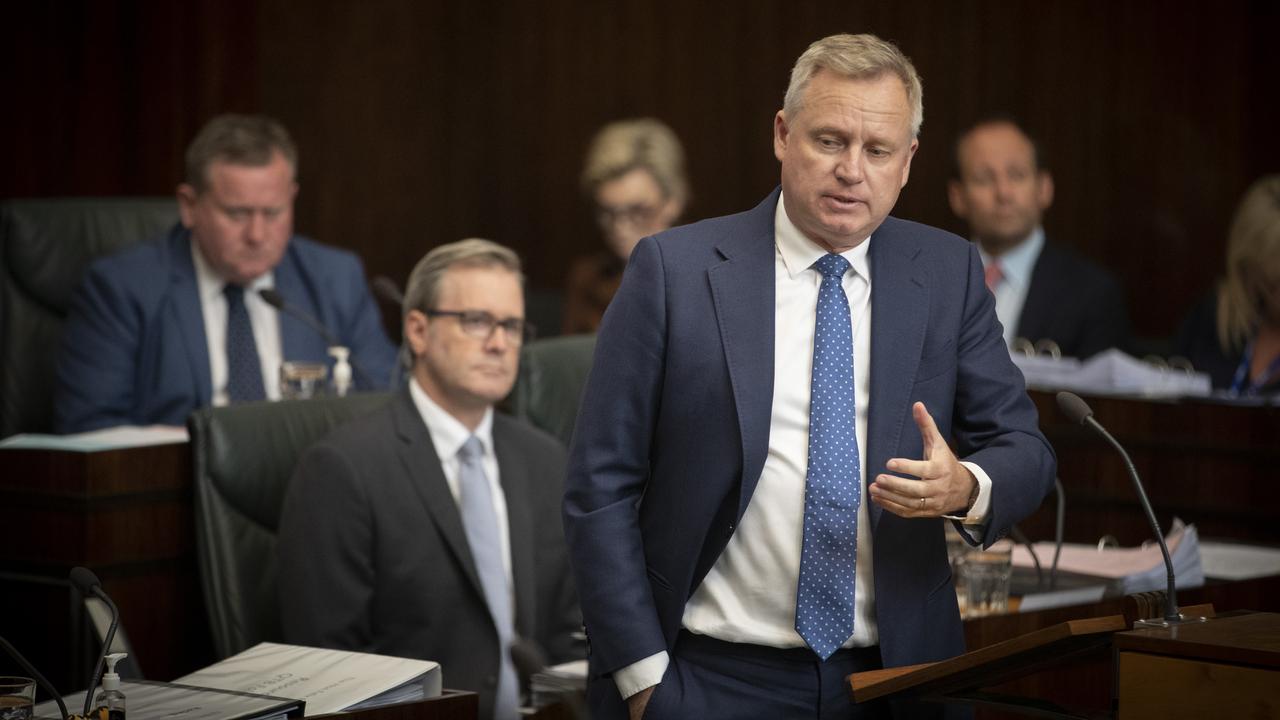
“Yesterday the Member for Nelson, the Honourable Meg Webb, made the extraordinary decision to put on the public record, assumptions that are not only wrong at law and inaccurate, but which have now maligned many individuals and entities,” he said
“It is wrong to say or assume that if a person or organisation has provided a procedural fairness response they must have been accused of wrongdoing or have been issued any notice about misconduct or adverse findings. Ms Webb’s assertion is not only factually incorrect; it is wrong at law.
“To suggest that the individuals and entities that provided such responses to the Commission are complicit or involved in the abuse of children – is as irresponsible as it is false.
“Lastly, I want to add that none of the statutory offices or officers named by Ms Webb received a Section 18 or 19 notice. And no current Head of Agency received a Section 18 or 19 Notice.
“I would also like to make the point that neither the Government, nor the State’s lawyers had any power over the Commission.
“I would like to encourage Ms Webb to reflect on her statements she has made and apologise.”
The list of those who made Procedural Fairness Responses in full:
Individuals:
Solicitor-General of Tasmania Sarah Kay SC
Commissioner for Children and Young People Leanne McLean
Tasmanian Ombudsman Richard Connock
Tasmanian Integrity Commission CEO Michael Easton
Former Department of Communities secretary Michael Pervan
Former Ashley Youth Detention Centre Manager Patrick Ryan
Ashley Youth Detention Centre Manager Stuart Watson
Former director of strategic youth services Department of Communities Greg Brown
Former director of Custodial Youth Justice Pamela Honan
Former department secretary Children, Youth and Families Mandy Clarke
Former Deputy Secretary, Former director of Corporate Services of the Department of Communities Kathy Baker
Former acting Director of People and Culture at the Department of Communities Jacqueline Allen
Ashley Youth Detention Centre youth worker Sarah Spencer
Department of Health Nursing and Midwifery South Director Sue McBeath
Nursing and Midwifery Director, Women and Children’s Services, Launceston General Hospital Janette Tonks
Executive Director of Nursing, Tasmanian Health Service Helen Bryan
Human Resource Manager, Department of Health James Bellinger
Launceston General Hospital Clinical Nurse Educator Michael Sherring
Chief Executive Hospitals North/Northwest Department of Health Eric Daniels
Department of Health Human Resource Consultant Mathew Harvey
Former Launceston General Hospital Director of Medical Services Peter Renshaw
Organisations:
State of Tasmania
Office of the Solicitor-General
Department of Health
Department for Education, Children and Young People
Tasmania Police
Office of the DPP
Integrity Commission
Teachers Registration Board.
Named: MP reveals list of Commission of Inquiry respondents
October 31, 5:23pm
The Commissioner for Children and Young People, the Ombudsman and the CEO of the Integrity Commission have been named as among those who faced potential adverse findings from the Commission of Inquiry.
In the Legislative Council late on Tuesday, independent Meg Webb revealed the names of 22 individuals and eight organisations who she said were shielded from accountability by “calculated blocking” from government lawyers and shortcomings in legislation.
A painstaking analysis of the Commission’s final report has revealed those who provided “Procedural Fairness Responses” to the Commission after being given notice of potential adverse findings.
Those named by Ms Webb on Tuesday night included the Office of the Solicitor-General, the Department of Health, the Department for Education, Children and Young People, Tasmania Police, the Office of the Director of Public Prosecutions, the Integrity Commission and the Teachers Registration Board.
Among the individuals were the Commissioner for Children and Young People Leanne McLean, Ombudsman Richard Connock, the CEO of the Tasmanian Integrity Commission Michael Easton and former Department of Communities Secretary Michael Pervan.
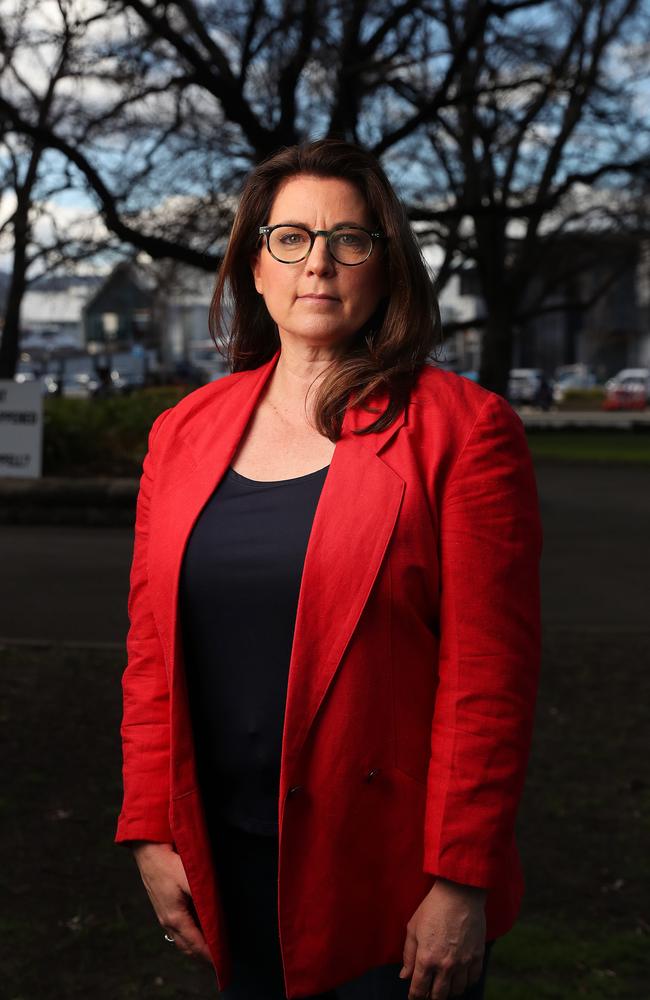
The member for Nelson said the “calculated blocking by the state of misconduct and adverse findings” looked like a continuation of the government’s “protection racket mentality”.
“This is a disgrace, it is unconscionable,” she told the Legislative Council.
“Any perception that government is closing ranks and that back-covering is occurring must be removed – immediately and entirely.”
She demanded the government confirm which senior public servants had faced potential adverse findings and whether any were now playing a role in implementing the Commission’s recommendations.
“On a prima facie reading of the Commission’s Report, legitimate questions arise relating to each of these individuals and entities, and whether the Commission was considering or intending to make a finding of misconduct or an adverse finding against them,” she said.
“The Commission’s report makes it clear that the absence of specific misconduct or adverse findings is because those processes had to be abandoned unfinished, due to apparent obstacles raised, primarily by the State — not because of lack of merit of any potential thwarted findings.
“What that clearly means is that significant clouds — rightly or wrongly — remain over those eight entities and 22 individuals.”
The Commission of Inquiry into the Tasmanian Government’s Responses to Child Sexual Abuse in Institutional Settings was established by then-Premier Peter Gutwein in 2020. It handed down its final report in September
In its final report, the three Commissioners expressed frustration that lawyers acting for the state government and public servants had argued the legislation governing its work did not allow adverse findings to be made against them.
“This interpretation made it difficult and, in some cases impossible, for us to make some of the findings we might otherwise have made,” the report says.
The Commission referred more than 100 people to police and child protection authorities but made only one finding of misconduct — against the former head of medical services at the Launceston General Hospital Peter Renshaw.
Changes to the Commissions of Inquiry Act which came into effect in March 2021
created additional requirements to provide procedural fairness where person may be subject to adverse finding.
“The requirements in the Act are out of step with other states and territories and make it too hard to do what commissions of inquiry are tasked to do — which, in some cases, involves holding individuals to account,” the Commission said.
“We consider a Commission of Inquiry should be able to make any findings it wishes, subject to complying with the rules of procedural fairness.
The commission noted the requirements were “unnecessary, counter-productive, onerous and not in the public interest”.
Ms Webb told parliament the suggestion that the Commission had not been able to hold public officials and organisations to account was extremely serious,
“This is of grave and urgent concern because the entities listed contain most of Tasmania’s key independent oversight watchdogs – and, separately, among the individuals listed are a number of the statutory office holders attached to them,” she said.
“It cannot be emphasised strongly enough, public confidence and trust in these entities and these officeholders must be paramount.
“If the Commission had been able to present further findings of misconduct plainly in the Report, even if they involved these individuals and entities, it would have been concerning, but able to be transparently understood and openly addressed.
“As it is, there is all the appearance of a deliberate effort to suppress such findings, denying the opportunity for full understanding and transparent accountability.”
More Coverage
Originally published as Public servants deny wrongdoing after providing Procedural Fairness Responses





